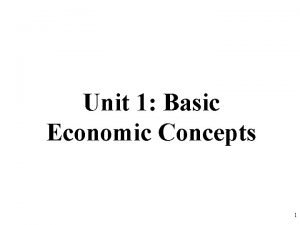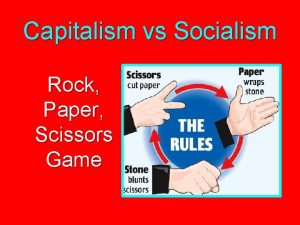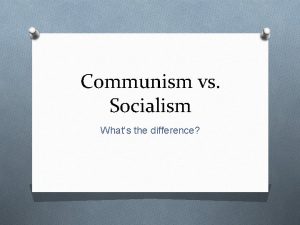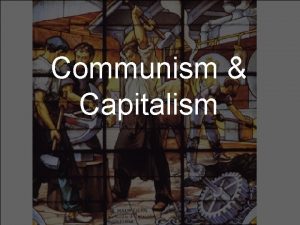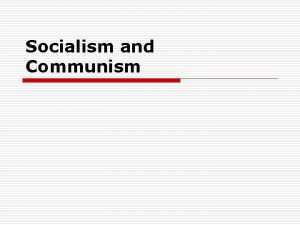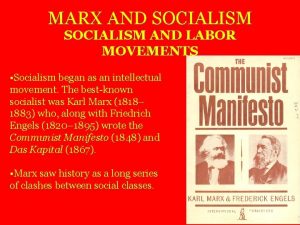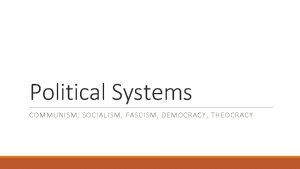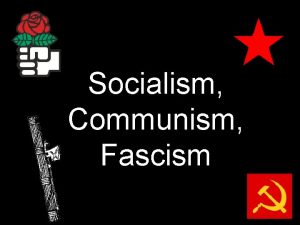UNIT III MARX AND ENGELS SOCIALISM AND COMMUNISM








- Slides: 8

UNIT III: MARX AND ENGELS

SOCIALISM AND COMMUNISM brought to you by KARL MARX and FRIEDERICH ENGELS A BASIC BACKGROUND: “Not just for rich schoolboys anymore!”

SOCIALISM AND COMMUNISM I. Background A. The conservative and liberal ideologies did not meet the needs of the growing and restless working classes. B. The early stages of the Industrial Revolution caused great hardships for many in the cities and on the farms. C. An ideology developed that attacked the Capitalistic System as being both unplanned and unjust. D. Socialism condemned the increasing concentration of wealth. E. Socialism called for radical changes toward equality.

SOCIALISM AND COMMUNISM II. Basic Socialism A. Socialism is public or worker control of the means of production (capital. ) B. This is a vast departure from Capitalism which is private ownership of the means of production. C. In “Democratic” Socialism, the people vote to nationalize certain industries. D. In “Totalitarian” Socialism, nationalization of industries is imposed on the people. E. In brief, Communism is the achieving of the same goal of Socialists but through quick, revolutionary methods.

SOCIALISM AND COMMUNISM III. Beliefs of Socialism A. They believed in basic human goodness. B. If society is only organized properly, there will be a future with no wars, no crime, no administration of justice, eventually no need for government. These were the Utopians. C. These early socialists depended on the good will of industrial philanthropists to accomplish their goals. D. By the mid-century period, Marx was proposing scientific socialism. E. Socialism began to justify violent revolution and preached the conflict of the classes.

Karl and Friederich

SOCIALISM AND COMMUNISM IV. Karl Marx and Friederich Engels grew up in the tumult of the pre-revolutionary post-Napoleonic German States. V. They both took part in the Revolutions of 1848 and already belonged to secret societies such as those we saw in Les Mis…. . and were both exiled. VI. They had already started collecting their thoughts about why some revolutions succeed and some fail. He writes the Communist Manifesto in 1848. VII. They meet in London in 1849 and combine their thoughts when they form “The People’s Front of Judea. ” …. wait. That’s not it.

SOCIALISM AND COMMUNISM VIII. Marxism: holds that human societies progress through class struggle: a conflict between an ownership class that controls production and a dispossessed laboring class that provides the labor for production. IX. States were run on behalf of the ruling class and in their interest while representing it as the common interest of all X. He predicted that capitalism produced internal tensions which would lead to its self-destruction and replacement by a new system: Socialism. XI. Class antagonisms under capitalism between the bourgeoisie and proletariat would eventually cause the working class' conquest of political power and eventually establish a classless society, Communism. XII. Marx actively fought for its implementation, arguing that the working class should carry out organized revolutionary revolt to topple capitalism and bring about socio-economic change.
